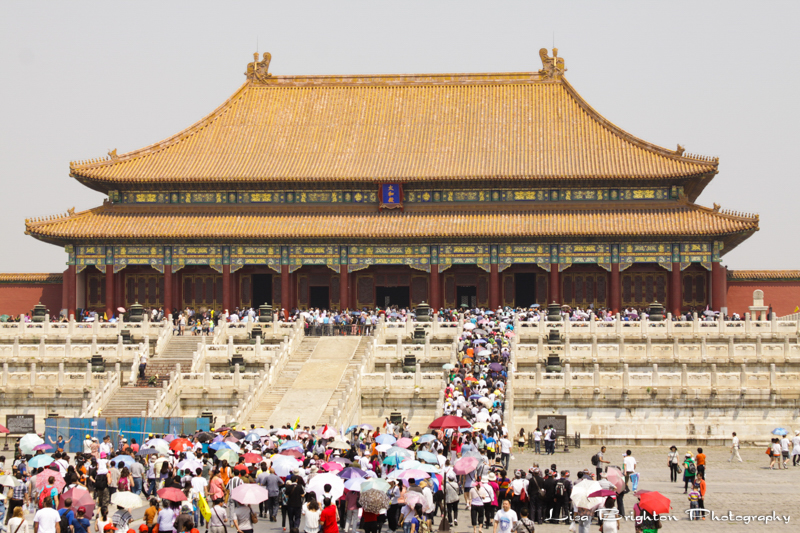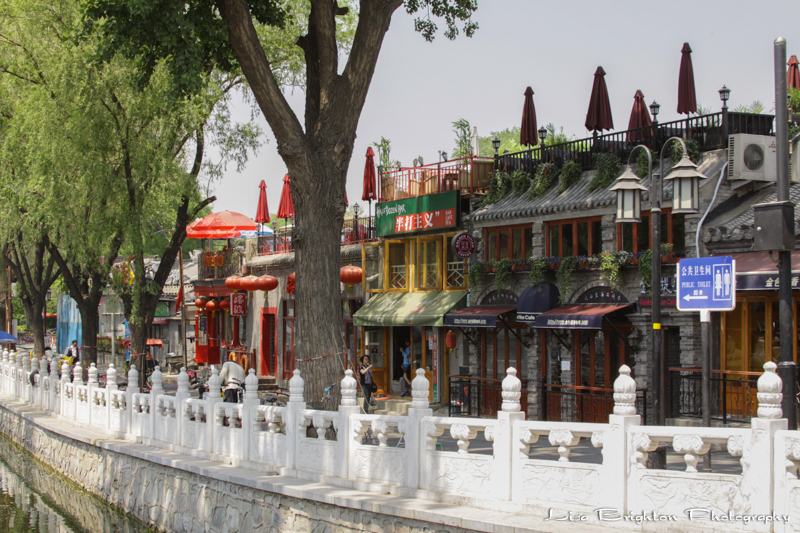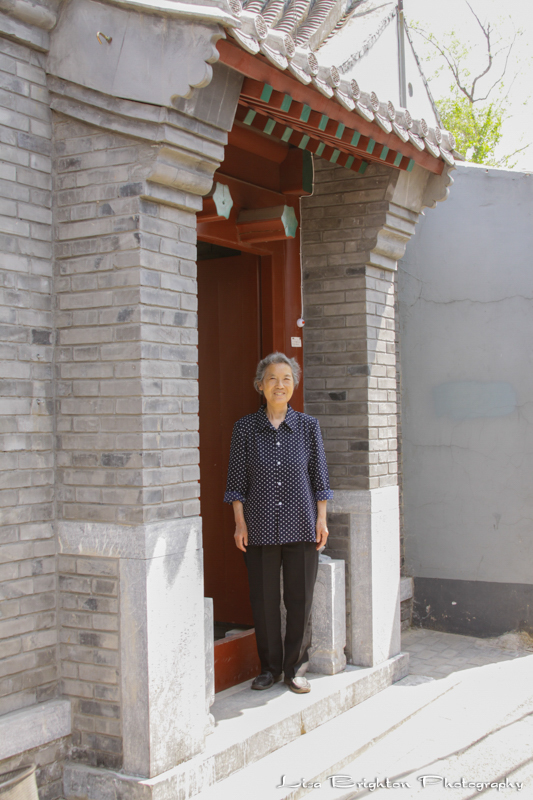1. People
 “What do you mean, you don’t know?” I ask Alice, my interpreter. “I don’t… Well, I know a little,” she says. “My elders taught me about some of the history here in Tiananmen Square.” “It wasn’t taught in school?” “No.” “Seriously?” “No.” “Do you know of the famous photograph called “Tank Man?” “No. What is this?” My mind starts to reel with thoughts of being in a communist country that filters news and history. I tell her what I know about the 1989 student protests that took place across from where we are standing. I describe the image of “Tank Man” and how he stood in front of a row of military tanks to protest the nationwide oppression. “It’s a very famous image by a photojournalist named Jeff Widener.” “I’ve never heard of him or the man with the tanks.” She looks at me like she isn’t sure whether she should believe me. “Why don’t we continue our tour and go to the Forbidden City?” she asks. It wasn’t the question I was anticipating, but rather than get into a conversation she seemingly wants to avoid, we continue with our tour of Beijing and join the masses of people in the Forbidden City that now houses the Palace Museum. “Twenty thousand people travel here every day to see the beauty and history of what once was the political center of Chinese government,” she says. “And I feel like they’re all here at this moment,” I say. She chuckles. “Really. There are just so many people everywhere I look.” “I guess I am comfortable with it,” she says. “I really don’t notice since I’m here so much for work.” She starts to tell me about the fourteen generations of emperors who lived here during the Ming Dynasty and the ten generations
“What do you mean, you don’t know?” I ask Alice, my interpreter. “I don’t… Well, I know a little,” she says. “My elders taught me about some of the history here in Tiananmen Square.” “It wasn’t taught in school?” “No.” “Seriously?” “No.” “Do you know of the famous photograph called “Tank Man?” “No. What is this?” My mind starts to reel with thoughts of being in a communist country that filters news and history. I tell her what I know about the 1989 student protests that took place across from where we are standing. I describe the image of “Tank Man” and how he stood in front of a row of military tanks to protest the nationwide oppression. “It’s a very famous image by a photojournalist named Jeff Widener.” “I’ve never heard of him or the man with the tanks.” She looks at me like she isn’t sure whether she should believe me. “Why don’t we continue our tour and go to the Forbidden City?” she asks. It wasn’t the question I was anticipating, but rather than get into a conversation she seemingly wants to avoid, we continue with our tour of Beijing and join the masses of people in the Forbidden City that now houses the Palace Museum. “Twenty thousand people travel here every day to see the beauty and history of what once was the political center of Chinese government,” she says. “And I feel like they’re all here at this moment,” I say. She chuckles. “Really. There are just so many people everywhere I look.” “I guess I am comfortable with it,” she says. “I really don’t notice since I’m here so much for work.” She starts to tell me about the fourteen generations of emperors who lived here during the Ming Dynasty and the ten generations  after that ruled during the Qing Dynasty. “All of those emperors with their empresses,” she says, “and of course, numerous concubines. For nearly 500 years they lived such a life of privilege, wealth and pageantry that the women rarely left the four walls that enclose the 90 palaces of the Forbidden City — they had no need. All of their needs were met here.” “Wow. I couldn’t imagine living like that.” “What do you mean?” “That type of lifestyle is very far removed from mine. I enjoy exploring the world and meeting people, so I can’t imagine living in a contained area.” We continue with our tour and stand in line with thousands of people going in and out of numerous incredible buildings, but I’m really not enjoying the tour. It’s so hot, and people are being rude as they keep pushing me. I’m not used to so much shoving, so I’m thrilled when we make our way to the gate and leave the hordes of people behind. I quickly shake off
after that ruled during the Qing Dynasty. “All of those emperors with their empresses,” she says, “and of course, numerous concubines. For nearly 500 years they lived such a life of privilege, wealth and pageantry that the women rarely left the four walls that enclose the 90 palaces of the Forbidden City — they had no need. All of their needs were met here.” “Wow. I couldn’t imagine living like that.” “What do you mean?” “That type of lifestyle is very far removed from mine. I enjoy exploring the world and meeting people, so I can’t imagine living in a contained area.” We continue with our tour and stand in line with thousands of people going in and out of numerous incredible buildings, but I’m really not enjoying the tour. It’s so hot, and people are being rude as they keep pushing me. I’m not used to so much shoving, so I’m thrilled when we make our way to the gate and leave the hordes of people behind. I quickly shake off  my irritation and we take a fun rickshaw ride to the modest home of Mrs. Wang. She lives in the Hutongs, a part of Beijing more commonly known as the “Old City”. It’s closer to my type of environment. Through Alice’s translations, Mrs. Wang graciously welcomes me into her home and explains how she is a community ambassador of sorts. She tells me about her quiet lifestyle and how her day begins with an early morning walk around Houhai Lake. The trees that drape over the walking path got my attention on the way here. It looked very inviting opposite a colorful array of small businesses. As she speaks, I picture her walking there. She tells me that she goes to the market every day to buy ingredients to make dumplings and other foods. She then proudly shows me her tiny kitchen, which is the size of a small closet. It contains some non-refrigerated food items, dishes, utensils and a two-burner portable stove. “No oven?” I ask. “I do not bake,” she says with a smile. We go into the living room, and Mrs. Wang draws my attention to a collection of family photographs and a framed picture of former United States Secretary of State and Nobel Peace Prize winner, Henry Kissinger. I see that the photo was taken on the sofa where I’m sitting, and it gives me goosebumps on my arms. With enthusiasm, she tells me about his visit to her home during the 2008 Beijing Olympics. She said he was nice and took an interest in the community that has been here for generations. I can’t help but feel happy for her as she beams with pride over the memory of the visit. She then leads me outside to a small terrace where she keeps potted flowers and points out how good her roses are doing this season. It’s a lovely and tranquil area, and some of her neighbors stop to greet her. She stands in her doorway as we leave, and I wave goodbye. I think it’s Mrs. Wang who lives a life of luxury tucked away in this peaceful community, not the former royalty who were contained in the Forbidden City.
my irritation and we take a fun rickshaw ride to the modest home of Mrs. Wang. She lives in the Hutongs, a part of Beijing more commonly known as the “Old City”. It’s closer to my type of environment. Through Alice’s translations, Mrs. Wang graciously welcomes me into her home and explains how she is a community ambassador of sorts. She tells me about her quiet lifestyle and how her day begins with an early morning walk around Houhai Lake. The trees that drape over the walking path got my attention on the way here. It looked very inviting opposite a colorful array of small businesses. As she speaks, I picture her walking there. She tells me that she goes to the market every day to buy ingredients to make dumplings and other foods. She then proudly shows me her tiny kitchen, which is the size of a small closet. It contains some non-refrigerated food items, dishes, utensils and a two-burner portable stove. “No oven?” I ask. “I do not bake,” she says with a smile. We go into the living room, and Mrs. Wang draws my attention to a collection of family photographs and a framed picture of former United States Secretary of State and Nobel Peace Prize winner, Henry Kissinger. I see that the photo was taken on the sofa where I’m sitting, and it gives me goosebumps on my arms. With enthusiasm, she tells me about his visit to her home during the 2008 Beijing Olympics. She said he was nice and took an interest in the community that has been here for generations. I can’t help but feel happy for her as she beams with pride over the memory of the visit. She then leads me outside to a small terrace where she keeps potted flowers and points out how good her roses are doing this season. It’s a lovely and tranquil area, and some of her neighbors stop to greet her. She stands in her doorway as we leave, and I wave goodbye. I think it’s Mrs. Wang who lives a life of luxury tucked away in this peaceful community, not the former royalty who were contained in the Forbidden City.
